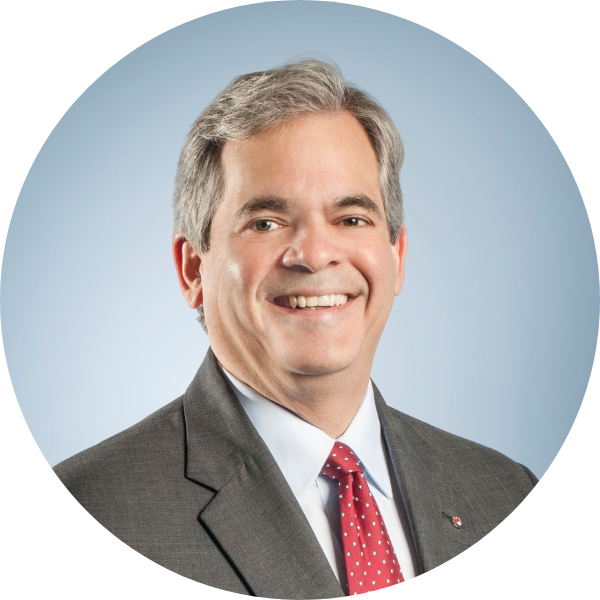Special Briefing: Managing Growth in America's Hottest States, Counties & Cities

The Volcker Alliance and Penn Institute for Urban Research invite you to join an online Special Briefing on how America’s hottest growth cities and states are facing challenges as they deploy resources to handle the recent pickup of domestic and international immigration to the South and West. US Census data show that Texas and Florida showed a net gain of almost 1 million residents in 2022; they and the rest of the ten fastest-growing states added a total of 1.6 million people. Will this influx help keep these states out of recession? What are the budgetary demands on infrastructure, housing, public safety, education, and the environment, and how will governments tap into recent federal infrastructure legislation?
Our panel of experts includes Mayor Steve Adler, former mayor, Austin, Texas; Alex Adams, budget director, Idaho; Matthew D. Chase, chief executive officer and executive director, National Association of Counties; Darryl Martin, county administrator, Dallas County, Texas; and Anna Roach, chief executive officer and executive director, Atlanta Regional Commission.
Moderated by William Glasgall, Volcker Alliance senior director, public finance and Penn IUR fellow, and Susan Wachter, co-director of Penn IUR, this briefing is the forty-first in a series of sixty-minute online conversations featuring experts from the national research networks of the Volcker Alliance and Penn IUR, along with other leading academics, economists, and federal, state, and local leaders.
Special Briefings are made possible by funding from The Century Foundation, the Volcker Alliance, and members of the Penn IUR Advisory Board.
Recordings of the entire Special Briefings series are available on the Volcker Alliance website: SPECIAL BRIEFING SERIES ARCHIVE.
Be sure to subscribe to the Special Briefing podcast, available on Apple Podcasts, Spotify, Google Podcasts, Stitcher, TuneIn, iHeart Radio and more.
Special Briefing Episode Summary:
Explosive Growth Brings New Challenges for States, Cities, Counties
By Stephen Kleege, Volcker Alliance Special Project Consultant
- Officials grapple with housing affordability, transportation needs
- "Culture wars" between cities and legislatures heat up over control of revenues
- Dallas County sues Texas over mental health services for growing jails
- Atlanta faces population influx the size of metropolitan Nashville
- Idaho's growth increases need for "farsighted financial stewardship"
The fastest growing US cities, counties, and states are benefiting and facing challenges from rapidly expanding populations, according to panelists at a Special Briefing hosted by the Volcker Alliance and Penn Institute for Urban Research.
Population growth, much of it in southern and western states, is jacking up demand and raising investment needs for everything from affordable housing and infrastructure improvements to schools, jails, and mental health services, panelists said. “Explosive growth is expensive,” Matthew D. Chase, chief executive officer and executive director, National Association of Counties, said during the April 27 program on managing growth in America’s hottest states, counties, and cities. “There’s often more revenue,” he said, but “we’re having more and more resident demand and expectations for public services.”
Moderated by William Glasgall, Volcker Alliance senior director, public finance, and Penn IUR fellow, and Susan Wachter, co-director of Penn IUR, the briefing was the forty-first in a series of sixty-minute online conversations featuring experts from the national research networks of the Volcker Alliance and Penn IUR, along with other leading academics, economists, and federal, state, and local leaders.
In addition to Chase, panelists included Steve Adler, former mayor, Austin, Texas; Alex Adams, budget director, Idaho; Darryl Martin, county administrator, Dallas County, Texas; and Anna Roach, chief executive officer and executive director, Atlanta Regional Commission.
Austin, where the population has grown 22 percent since 2020, to 964,000, is an example of municipalities straining to meet some of the demands of growth, Adler said.
“Cities are both benefiting from that population increase and being challenged by it,” said Adler, a Democrat who finished his second mayoral term this year. “Austin is one of the extreme examples of that.”
Chief among the challenges Austin has faced, he said, are rising housing prices and associated challenges of gentrification, displacement, and homelessness. “We built more houses per capita last year than any other city in the country and it still wasn’t enough,” he said.
Adler said Austin in 2016 sold $720 million in transportation infrastructure bonds, and later approved an almost 20 percent increase in property taxes to help pay for $25 billion of transportation projects. The city is working on climate change initiatives and infrastructure, he said but is getting pushback from lawmakers in the Republican-dominated state legislature, who he said are putting limitations on the revenue that cities, many, such as Austin, run by Democratic mayors, can raise. “We’re in the middle of the culture wars,” he said.
In Dallas County, the city’s population has slipped recently even as suburban areas have grown. Yet the nation’s ninth-biggest city is still the hub of great entertainment, large employers, and cultural activity, Martin said. This places “real increased strain and burdens on our infrastructure and services.”
While Dallas County has made progress in reducing crime and homelessness, it still faces a housing affordability crisis, he said, as the median home price has doubled in the last decade and rents soared by about 30 percent in the last two years. The county devoted American Rescue Plan Act funds to the development of 2,000 affordable housing units, he said. “It’s not nearly enough but it’s what we could afford to do.”
The county also faces a rising need for mental health services, exacerbated by COVID-19, and recently sued the state to provide such care to county jail inmates, Martin said.
Almost 800 miles to the east of Dallas, the Atlanta Regional Commission projects an increase of 1.8 million in population by 2050, the equivalent of the entire Nashville metropolitan area migrating to Georgia’s capital region, Roach said. The commission is focusing on access to infrastructure, equity for growing minority communities, and how emerging technology such as artificial intelligence will affect development, she said.
Idaho, the fastest growing state since 2010, has enjoyed revenue growth of about 5.7 percent a year over the past decade, paced by revenue increases of 24 percent in 2021 and 2022 as federal pandemic aid flooded the nation. Said Adams: “The challenge that comes with that is trying to have farsighted financial stewardship and look down the road and structure a budget that will balance over time. What our approach has been is to assume that a lot of it is onetime in nature.”
Adams said Idaho forecasts about $5.5 billion of ongoing annual revenue and has planned for ongoing expenses of about $5.1 billion. “We’ve kept an operating gap as a cushion for uncertainty if things continue to slow down.”
 Steve Adler most recently served as Austin’s 52nd Mayor, term limited after completing his second term at the start of 2023. During his tenure as Mayor of Austin, TX, his top priorities included mobility, affordability, climate change mitigation, and equity for all Austinites. Mr. Adler served as a Trustee of the United States Conference of Mayors, Chair of the Capital Area Metropolitan Planning Organization (CAMPO) policy board, Executive Board of Climate Mayors, and Vice President of the National Council of Democratic Mayors. During his time in office, the City of Austin passed the largest mobility and affordable housing bonds in its history. He shepherded Austin through COVID with one of the lowest mortality rates in the country, less than half that nationally and in Texas. The has city centered equity, raised its minimum city wage to $20 per hour, passed city-wide sick leave, and second chance hiring protections. Mr. Adler helped launch and raise $500 Million to fund FindingHomeATX with a goal to reaching net zero homelessness in Austin after having achieved that status for veterans. The city continued as a world leader on climate change action. Mr. Adler received broad recognition for innovative leadership. Foreign Policy named him a Global reThinker and Living Cities included Mr. Adler on its list of 25 Disruptive Leaders (along with Facebook’s Mark Zuckerberg and author Ta-Nehisi Coates) to mark that organization’s 25th anniversary.
Steve Adler most recently served as Austin’s 52nd Mayor, term limited after completing his second term at the start of 2023. During his tenure as Mayor of Austin, TX, his top priorities included mobility, affordability, climate change mitigation, and equity for all Austinites. Mr. Adler served as a Trustee of the United States Conference of Mayors, Chair of the Capital Area Metropolitan Planning Organization (CAMPO) policy board, Executive Board of Climate Mayors, and Vice President of the National Council of Democratic Mayors. During his time in office, the City of Austin passed the largest mobility and affordable housing bonds in its history. He shepherded Austin through COVID with one of the lowest mortality rates in the country, less than half that nationally and in Texas. The has city centered equity, raised its minimum city wage to $20 per hour, passed city-wide sick leave, and second chance hiring protections. Mr. Adler helped launch and raise $500 Million to fund FindingHomeATX with a goal to reaching net zero homelessness in Austin after having achieved that status for veterans. The city continued as a world leader on climate change action. Mr. Adler received broad recognition for innovative leadership. Foreign Policy named him a Global reThinker and Living Cities included Mr. Adler on its list of 25 Disruptive Leaders (along with Facebook’s Mark Zuckerberg and author Ta-Nehisi Coates) to mark that organization’s 25th anniversary.
 Alex Adams is the budget and regulatory director for Governor Brad Little (R-Idaho). He served as chairman of the Governor’s Coronavirus Financial Advisory Committee and is the state’s Infrastructure Coordinator for the Bipartisan Infrastructure Law. Adams is a graduate of the University of Toledo and Johns Hopkins University.
Alex Adams is the budget and regulatory director for Governor Brad Little (R-Idaho). He served as chairman of the Governor’s Coronavirus Financial Advisory Committee and is the state’s Infrastructure Coordinator for the Bipartisan Infrastructure Law. Adams is a graduate of the University of Toledo and Johns Hopkins University.
 Matthew D. Chase has served as the CEO/executive director of the National Association of Counties (NACo) since September 2012. As the chief executive officer, he is responsible for the overall management of the association. NACo is the only national association representing America’s 3,069 county governments.
Matthew D. Chase has served as the CEO/executive director of the National Association of Counties (NACo) since September 2012. As the chief executive officer, he is responsible for the overall management of the association. NACo is the only national association representing America’s 3,069 county governments.
During his professional career, Matt has focused on promoting America’s economic competitiveness, strengthening the intergovernmental system of federal, state, and local officials, and engaging local elected officials in the federal policymaking process. In addition, he is a regular presenter on the impact of federal budget and policy trends on local governments and communities.
Previously, Matt served nearly a decade as executive director of the National Association of Development Organizations (NADO), representing local government-based regional planning and development organizations. Prior to becoming NADO’s executive director, he was the organization’s deputy executive director and legislative affairs director. He began his career with the Professional Managers Association, serving as membership services director and chief operating officer.
He is a graduate of Hartwick College in Otsego County, New York, and holds a master's degree in political management from The George Washington University. He currently serves on the board of advisors for GW’s Graduate School of Political Management and the board of directors for Vets’ Community Connections. He was recently selected as a Fellow for the National Academy of Public Administration.
 Darryl Martin was appointed to his current position after serving for as the assistant county administrator for Clark County, Nev., the 15th largest county in the nation that includes the City of Las Vegas. He is the first black county administrator to serve Dallas County. Martin is responsible for the day-to-day oversight of the Dallas County government under the direction and authority of the Commissioners Court and in support of Dallas County’s strategic plan. In addition to his responsibilities as county administrator, he has also completed the training to be a reserve county sheriff’s deputy.
Darryl Martin was appointed to his current position after serving for as the assistant county administrator for Clark County, Nev., the 15th largest county in the nation that includes the City of Las Vegas. He is the first black county administrator to serve Dallas County. Martin is responsible for the day-to-day oversight of the Dallas County government under the direction and authority of the Commissioners Court and in support of Dallas County’s strategic plan. In addition to his responsibilities as county administrator, he has also completed the training to be a reserve county sheriff’s deputy.

Anna Roach is Executive Director & CEO of the Atlanta Regional Commission (ARC) whose vision is to create One Great Region through its mission to foster thriving communities for all within the Atlanta region through collaborative, data-informed planning and investments. As Executive Director & CEO, Ms. Roach leads a talented team that works with local governments and community partners to improve quality of life in the Atlanta region. In addition to developing and maintaining long-range, comprehensive, regional plans in the areas of transportation, aging, workforce development, natural resources, and urban area security, ARC deploys nearly $3B of investments across the metropolitan-Atlanta region on an annual basis. In addition to her role as CEO, Roach is a member of the International Women’s Forum Georgia and the Atlanta Rotary. Roach has been named one of the 100 most influential Georgians by Georgia Trend, one of the 500 most powerful Atlanta leaders by Atlanta Magazine, and one of 22 leaders to watch in 2022 by the Atlanta Business Chronicle. She holds a Juris Doctor from St. John’s University and a Bachelor of Arts in political science from the State University of New York, College at Cortland.


